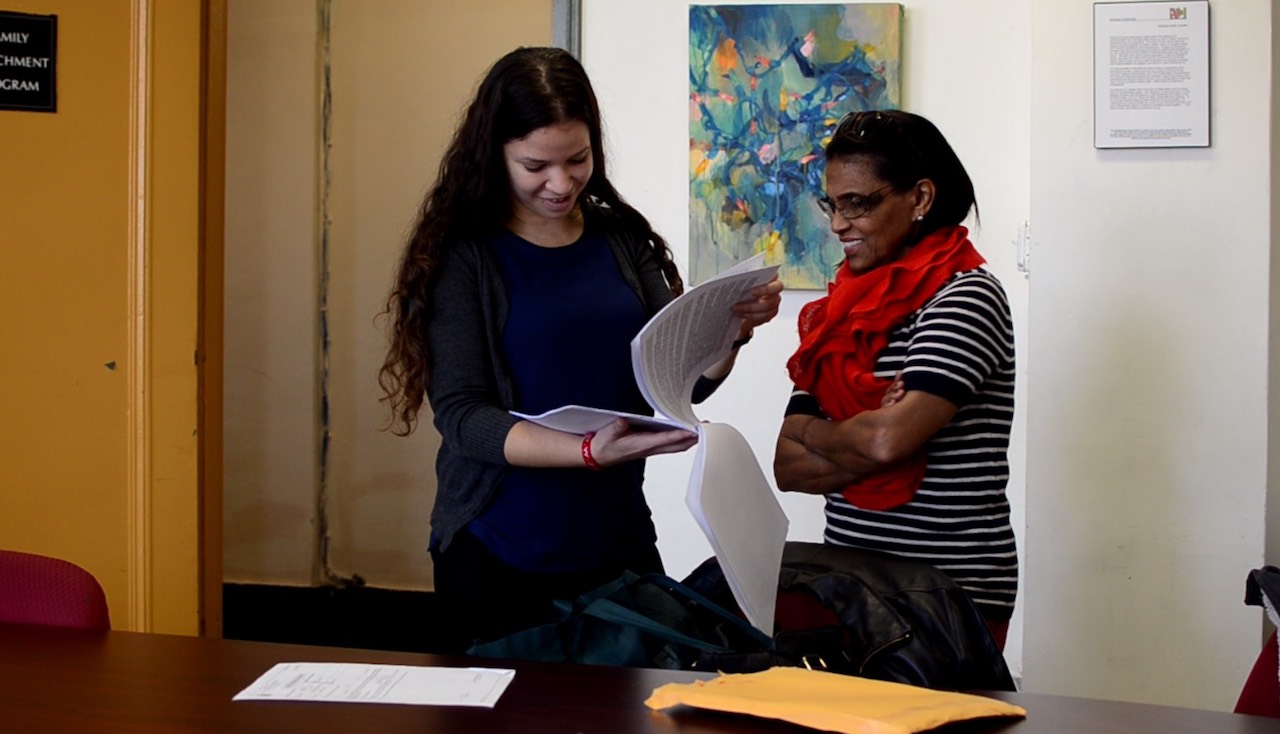
A project that protects the elderly from eviction asks City Council for help
A program meant to prevent low-income Bronx seniors from being evicted from their homes is on the verge of closing, at a time when such protection is most urgently needed, say housing advocates. BronxWorks says that the Senior Homelessness Prevention Project, which it has run from an office in the basement of Bronx Housing Court since 2014, will shut down on June 30 unless new funding sources are found.
Since the program began operating, its caseworkers have spared more than 400 seniors from eviction, about 15 percent of them in Mott Haven and Hunts Point, says BronxWorks. Up to 30 seniors seek out the program’s help in court daily.
Until now, the project’s funding has been provided by a philanthropic foundation, but that grant is about to end. The annual operating budget is $250,000.
One Bronx senior who said he benefited from the program, Carlos Baez, has lived on Southern Boulevard in Crotona Park East since 1976. Baez, 69, had been regularly paying $583 in rent, until one day he was shocked to get a bill for $873. His monthly check from Social Security is just $732.
“I couldn’t pay it,” said Baez. “I was going to have to move to a shelter.” After he sought out the Homelessness Project’s help, caseworker Rebecca Tilakdharry intervened on his behalf, successfully pushing the landlord to reduce Baez’s rent to the prior rate.
“I know everybody here,” said Baez of his home of 41 years. “I didn’t want to start over.”
The majority of Bronx seniors who end up relying on the program live from Social Security payments of roughly $700 monthly, said Tilakdharry. That’s not enough to help them keep pace with the borough’s rapidly rising rents. On average it costs the program $1,250 to represent a senior faced with eviction, from the beginning to the end of a case. In contrast, the city pays landlords about $3,000 monthly to shelter a homeless person or family.
Tilakdharry and the program’s other two caseworkers look for ways to bring in more revenue for their clients, through rent exemptions and other benefits they may not know they are eligible for. “A lot of them don’t know what to do,” said Tilakadharry. “No one’s really looking out for the seniors.”
Julie Belizaire-Spitzer, BronxWorks’ director of homelessness prevention, says that some landlords take advantage of older tenants by tacking illegal fees or bogus non-or late payment penalties onto the rent.
“It’s so easy for a landlord to say ‘this person owes me $5,000,’ but when we say, ‘give us a breakdown,’ we see he put in legal or late fees that you can’t charge a tenant for,” said Belizaire-Spitzer. “But the senior won’t know that.”
Around 6 percent of the people evicted in New York City are over the age of 65, according to a 2016 report by the Office of Civil Justice. The report also found that a third of the city’s evictions are filed in the Bronx. And although evictions were down in the rest of the city between 2011 and 2015, they increased by 6 percent in the Bronx during that period.
Caseworkers are expected to get to know their clients well, so they can go beyond the typical constraints of what a lawyer might offer in defending an elderly person.
“There’s so much more to it than just the legal component,” said Belizaire- Spitzer. “We have to look at the mental state of the senior.”
Migdalia Martinez was paying $350 rent for the East 137th Street apartment, where she has lived for 36 years. That amount came out of her $700 Social Security check. But a bout with depression led Martinez to stop sending in her rent checks.
As a result, Martinez’s landlord tried to evict her. But when Martinez visited the program’s office for help, caseworker Wendolin Lopez identified the problem. She realized that Martinez’s depression had made it difficult for her to write and mail out her rent checks in recent months. So Lopez set up a monthly automatic rent payment arrangement and Martinez hasn’t missed a payment since.
“I’m so happy I got to stay,” said Martinez. “My children and grandchildren grew up here. It’s my memories.”
BronxWorks says it is counting on the City Council to fill the funding gap, and has asked council members Melissa Mark-Viverito and Rafael Salamanca to help push for financing.

